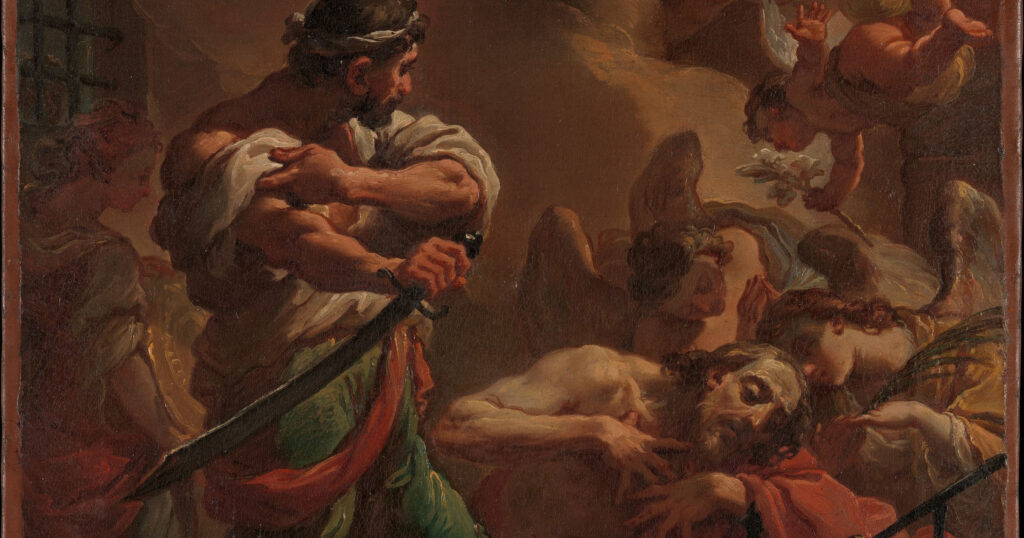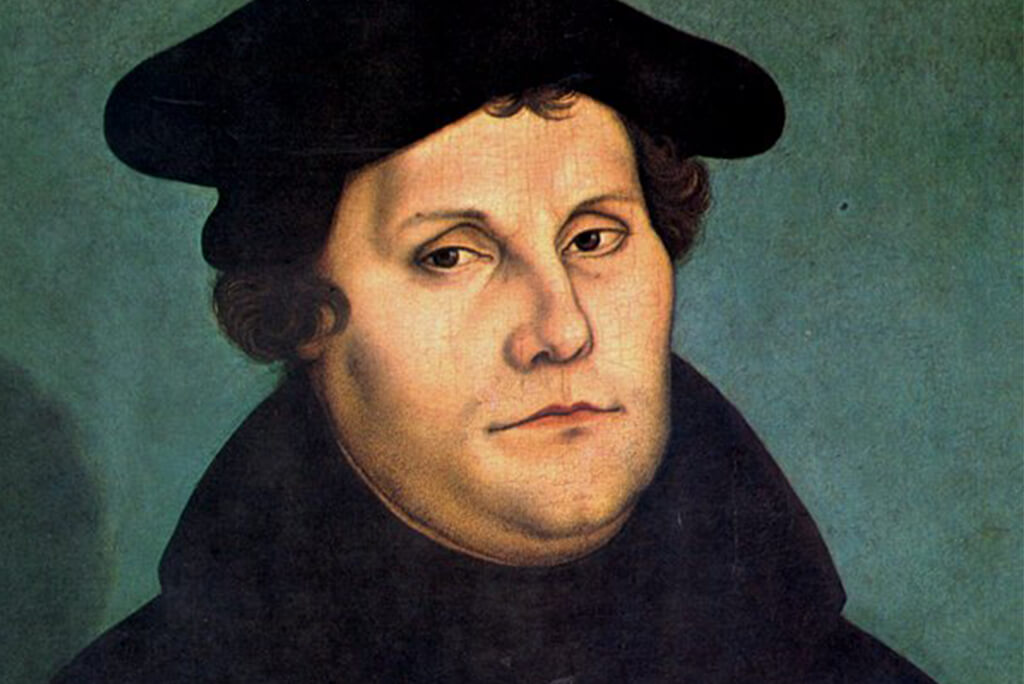by Matthew C. Harrison
Just over a month ago, as we’ve all seen in the news, a badly demented and disordered individual committed and attempted murder at Annunciation Catholic School in Minneapolis. There’s obviously mental illness involved — gender dysphoria and many other issues. And as with a number of public shootings recently, there was a manifesto left behind. Then, just two weeks later, we received the shocking news of the tragic murder of Charlie Kirk, a confessing Christian murdered for political speech. Here too, the killer left his manifesto, in the form of inscriptions on bullet casings. These manifestos are, in a way, a self-justification for the criminal act.
We live in a sin-disordered world, and we see it on display most egregiously in these kinds of tragedies. But sin disorders all of us. It pushes us all toward self-justification.
There’s a beautiful quote by Oswald Bayer I love coming back to. He says,
Those who justify themselves are under compulsion to do so. There is no escape. We cannot reject the question that others put to us: Why have you done this? What were you thinking about? Might you not have done something else? In the other’s view of us, and also in our own view, we always find ourselves to be the ones who are already being questioned and who have to answer. Complaints are made against us. We are forced to justify ourselves, and as we do so, we usually want to be right. … The world of the court is not a special world of its own, but just a particular instance — a very striking one — of what is being done always and everywhere.”[1]
In other words, in everything you do, your job, your work in your vocation, your every activity, every lazy thing you don’t do, every quip, every response — you are prone as disordered sinners to seek self-justification. Just think about the last time you had an argument with your spouse. “Well, if you would have … Then I wouldn’t have … !”
When John the Baptist came to prepare the way of our Lord, he did so by preaching repentance.[2] He preached against disorder, you might say. “In those days John the Baptist came preaching in the wilderness of Judea, ‘Repent, for the kingdom of heaven is at hand’” (Matt. 3:1–2).
And he came preaching for the repentance of all: “Bear fruits in keeping with repentance. … The axe is laid to the root … [and] every tree therefore that does not bear good fruit is cut down and thrown into the fire” (Luke 3:8–9). He preached repentance to soldiers and tax collectors and religious experts who acted in disordered ways, abusing their authority and hurting others. Nothing is so natural to our sinful disordered nature as self-justification.
No matter how far our culture attempts to stray from God’s Law and from any kind of absolute moral code, people will never be free from the intense need to justify themselves. For, as Bayer says, there is no escaping the evaluations of others.
If one accepts and welcomes the other [person] or not, if one greets the other or not, if one acknowledges the other … or if one does not acknowledge the other and regards the other as worthless, a decision is made concerning our being or non-being. Only a being that is recognized and acknowledged is a being that is alive. If no one were to call and greet me by name, if no one were ready to speak to me and look at me, then I would be socially nonexistent. … As social beings we live by the word given and heard. This word either grants or denies us recognition and justification.[3]
Some people say that the language of justification is completely foreign to modern people, so we shouldn’t talk about it. Bayer says exactly the opposite. Justification is the most fundamental reality of all of human life. We all justify ourselves for everything. Especially when we’re wrong, especially when we’re disordered.
We, the church, have the answer to this world’s disorder. Everybody longs for recognition. For acceptance. To be reckoned by God. And we have the answer: Our Augsburg Confession says, “People are freely justified for Christ’s sake, through faith, when they believe that they are received into favor and that their sins are forgiven for Christ’s sake. By His death, Christ made satisfaction for our sins. God counts [reckons] this faith for righteousness in His sight” (AC IV). By grace, through faith, only by Christ, we are reckoned somebody. You are reckoned as precious as the blood of Christ. You are reckoned sinless, guiltless. You are reckoned infinitely valuable. That’s what every person in the world needs, whether he/she understands it or not. And that’s our blessed message.
All of this reckoning of us by God happens through crosses and difficulties and deaths and all other suffering in this world. In fact, the Bible teaches over and again that God allows and even sends suffering upon us for good whether evident to us or not. It’s expressed so well by St. Paul: “When I am weak, then I am strong” (2 Cor. 12:10). When I am nothing, Christ is my all. John died preaching that message: “I must decrease. Christ must increase.” John’s martyrdom dramatically demonstrated this. John’s death happened for a purpose, that all attention be placed on Jesus. And that is the way it goes with all of us Christians, including the suffering Christians of Annunciation Catholic Church in Minneapolis.
A final point: We used to have the NIV as the official translation in the Missouri Synod. And at Matthew 11:12, where Jesus is talking about John the Baptist, the NIV renders it: “The kingdom of God is forcefully advancing, and forceful men are laying hold of it” — that is, “If you want to take the kingdom of God, you’ve got to act courageously.” That’s not what the text says. It’s not about our activity, it’s about what the kingdom suffers.
Here’s what the King James Version says: “And from the days of John the Baptist until now the kingdom of heaven suffereth violence, and the violent take it by force.”
The kingdom suffers violence. And in doing so, it advances to the Last Day. Rejoice! You are reckoned somebody. Rejoice! Your words have the power to reckon others beloved and justified. Rejoice! You have eternal treasures. Rejoice! Come what may — like the martyrdom of John or Jesus Himself — eternal life is certain, no matter what this existence disordered by sin throws at us.
In the name of Christ, Amen.
— Pastor Matthew C. Harrison
[1] Oswald Bayer, Living by Faith: Justification and Sanctification, trans. Geoffrey W. Bromiley (Grand Rapids: Eerdmans, 2003), 1.
[2] Note: This article is adapted from a sermon preached on the Feast of the Martyrdom of St. John the Baptist, Aug. 29.
[3] Bayer, Living By Faith, 1–2.





